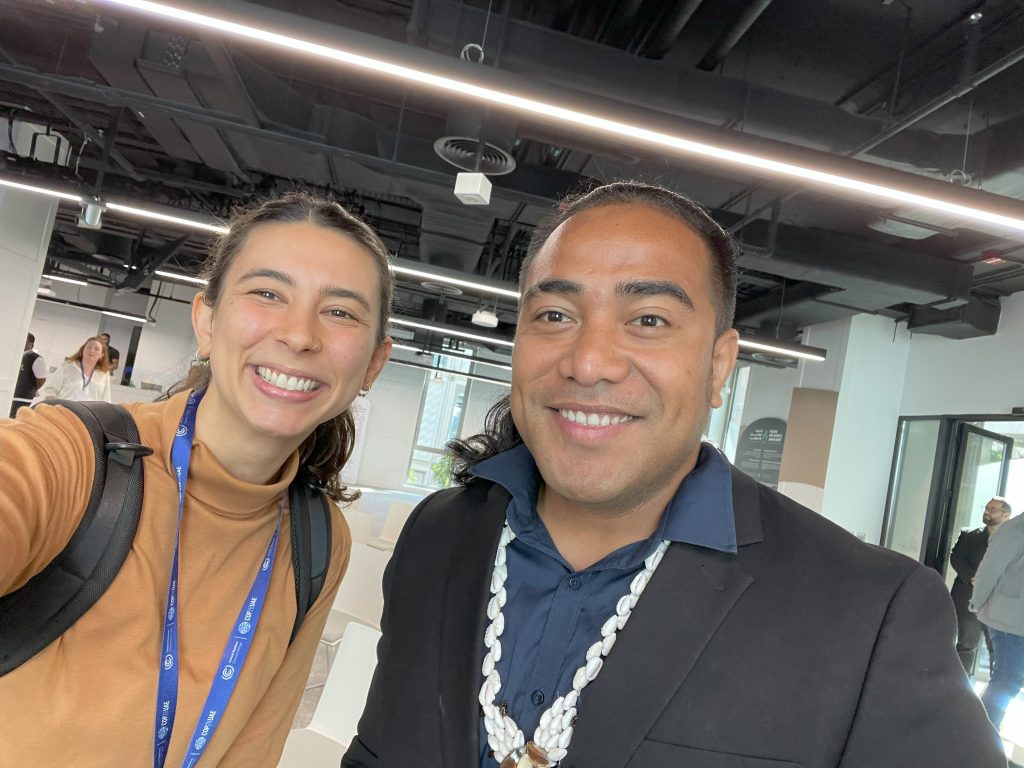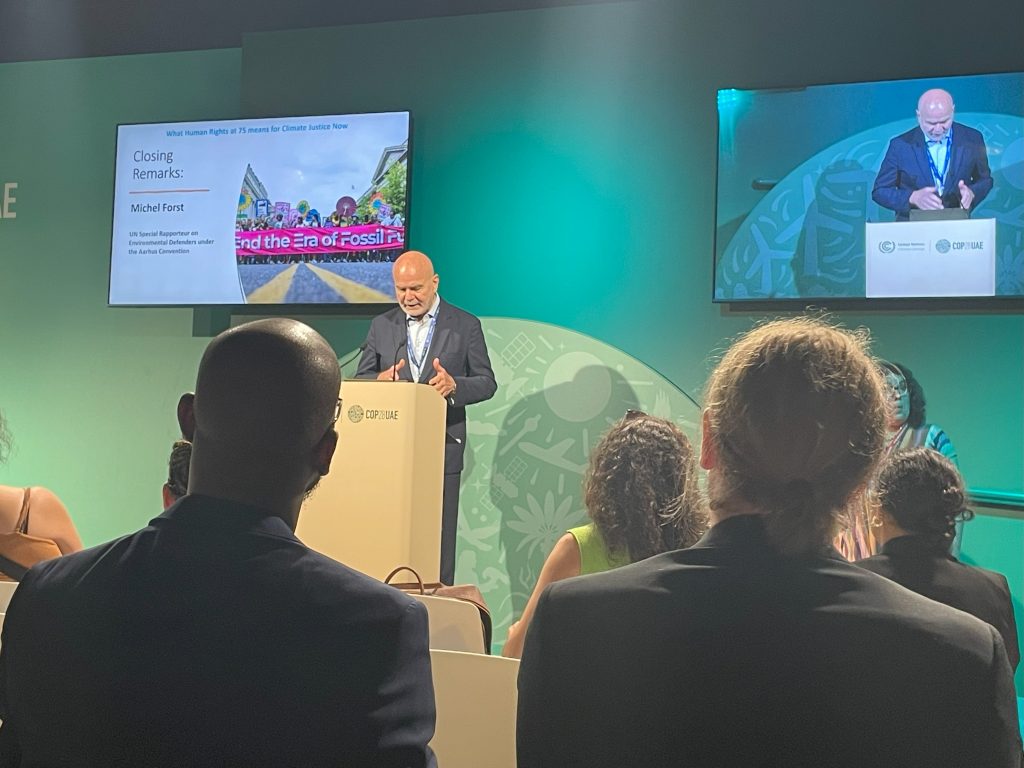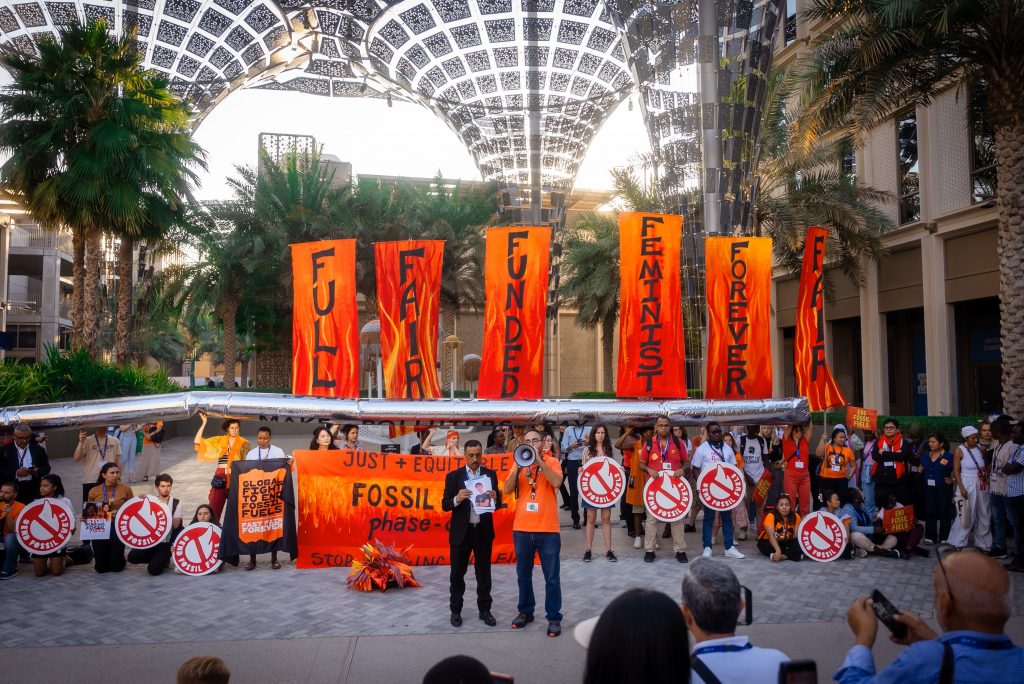
I was lucky to attend for a second year because of the ELP Program! I observed some governmental negotiations, but focused my learning this year on human rights and the freedom of assembly. After seeing headlines about tens of thousands of protestors marching outside of COP26, it surprised me that countries that heavily restrict protest hosted the last two COPs. International climate negotiations are inherently undemocratic, so protest offers civil society an important opportunity to express its views, make demands of governments, and draw attention to issues.

During our week in Dubai, I attended presentations and interviews with U.N. human rights experts, Indigenous environmental defenders, protest organizers, and government representatives. I learned that, globally, environmental defenders get harassed, criminalized, or killed for advocating for the basic human right to a clean and healthy environment. Mirroring this, the UNFCCC has increasingly imposed time, location, and content restrictions on demonstrations within the COP venue. Due to the UAE’s restrictive protest and speech laws, some activists and NGO employees felt nervous about attending COP28. I tried interviewing representatives from the States about the ongoing COP29 host country selection; most representatives were unwilling to speak to me, while another told me that I could not use any information shared about the secretive, contentious deliberations.

One “Phaseout Fossil Fuels” protest I attended was relegated to a demonstration zone in the back corner of the venue with little foot traffic. Activist calls for fossil fuel phaseouts were answered with watered-down stock take language about phasing out “inefficient” fossil fuel subsidies. I am not sure that protests, especially when so restricted, can compete with the influence of over 2400 fossil fuel lobbyists attending COP28. With so much on the line at the COPs, the host country selection process needs to operate transparently with freedom of assembly prioritized and protected. After my experience at COP28, I hope to continue researching this topic and the democratization of climate governance generally.

Emily Sarasa ’24
SM 4/2/2024
